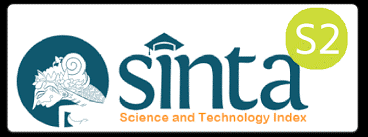RELATIONSHIP OF MATERNAL SELF EFFICACY, SOCIAL SUPPORT WITH POSTPARTUM DEPRESSION
DOI:
https://doi.org/10.35730/jk.v11i0.676Abstract
Introduction: The high level of postpartum depression in postpartum mothers, which can affect the mother's skills in caring for and caring for her baby, requires self-efficacy and maternal social support for post-partum mothers so that the level of postpartum maternal depression can be reduced.
Purpose: The purpose of this scoping review is to map available evidence to the relationship maternal self efficacy, social support with depression postpartum.
Methods: In this scoping review, the authors identify studies that explain the relationship between maternal self-efficacy, social support with postpartum depression from three databases (PubMed, Proquest, and Science Direct). Searches are limited to studies published in English and present data for the period 2009-2019. The identified research was reviewed using the PRISMA Flowchart. Studies with quantitative designs related to the relationship maternal self-efficacy, social support with postpartum depression are then selected for review.
Results: From a total of four articles that have been reviewed, two sub-themes are maternal relationship self-efficacy with postpartum depression and relationship social support with postpartum depression.
Conclusion: From this review, some pieces of evidence show that there is a significant relationship between maternal self-efficacy, social support with postpartum depression. All studies included in the review have limitations related to the research design or sample collection procedures
References
Gjerdingen, Dwenda., McGovern., Patricia., Attanasio., Laura., Johnson, Pamela Jo & Kozhimannil, Katy Backes. (2014). Maternal Depressive Symptoms , Employment , and Social Support. J Am Fammed. pp. 87–96. Retrieved from:DOI:10.3122/jabfm.2014.01.130126.
Kim, T. H. M.,Connolly, J.A., & Tamim, H. (2014). The Effect of Social Support around Pregnancy on Postpartum Depression among Canadian Teen Mothers and Adult Mothers in the Maternity Experiences Survey. BMC pregnancy and Childbirth. 14, 162. Retrieved from: DOI: http://doi.org/10.1186/1471-2393-14-162
WHO. (2015). Creating Supportive Environment for Health. WHO Library
Ozcan, N.K., Boyacioglu, N.E., & Dinc, H. (2017). Postpartum Depression Prevalence And Risk Factors In Turkey: A Systematic Review And Meta-Analysis. Archives of Psychiatric Nursing, Elsevier Inc.Retrieved from: DOI:10.1016/j.apnu.2017.04.006.
Abdollahi F., Zarghami, M., Azhar, Md Z., Sazlina, S.G and Lye, Munn-Sann. (2014). Predictors and Incidence of Post-Partum Depression : A Longitudinal Cohort Study. J Obstet Gynaecol, Res. Vol. 40, no. 12, pp. 2191–200, Retrieved from: DOI:10.1111/jog.12471.
Girsang, Bina Melvia, (2013). Pengobatan Perilaku Kognitif Untuk Depresi Postpartum Cognitive Behavior Therapy for Postpartum Depression
Brazeau, N., Reiszu, S., Jacobvitz, D., and George, C. (2017).Understanding The Connection Between Attachment Trauma And Maternal Self-Efficacy In Depressed Mothers. Infant Mental Health Journal. Vol. 00, no. 0. pp. 1–12. Retrieved from DOI :10.1002/imhj.21692.
Berkule, Samantha B., Cates, Carolyn Brockmeyer. Dreyer, Benard P., Huberman, Harris S., Arevalo, Jenny, Burchen, Nina, Weisleder, Adriana and Mendelsohn, Alan L. (2014). Reducing Maternal Depressive Symptoms Through Promotion of Parenting in Pediatric Primary Care. Journal Clinical Pediatrics. Retrieved from DOI :10.1177/0009922814528033.
Borra, C., Iacovou, M., & Sevilla, A. (2015). New Evidence on Breastfeeding and Postpartum Depression : The Importance of Understanding Women ’ s Intentions. Retrieved from DOI :10.1007/s10995-014-1591-z
Burgut, F. Tuna., Benner, A.,Ghuloum, S., & Sheikh, J. (2013). A Study of Postpartum Depression and Maternal Risk Factors in Qatar. Vol. 8942, no. 2. pp. 90–97. Retrieved from: DOI:10.3109/0167482X.2013.786036.
Wahyuni, S., Murwanti, & Supiati. (2014). Faktor Internal Dan Eksternal Yang Mempengaruhi Depresi Postpartum. Jurnal Terpadu Ilmu Kesehatan. NO.2, 131-137
Zheng, X., Morrel J, Watts .K. (2017). “ A quanlitative longitudinal study to explore factors which influence maternal self efficacy amog Chinese primiparous women during the initial postpartum period .” Midwifery, vol. 62, no. April 2017, Elsevier Ltd, 2018, pp. 151–60. Retrieved from:DOI: 10.1016/j.midw.2017.12.022
Fathi, Fahimeh, and Sakineh Mohammad-alizadeh-charandabi. (2018). “Maternal Self-Efficacy , Postpartum Depression , and Their Relationship with Functional Status in Iranian Mothers.” Women & Health, vol. 58, no. 2, Taylor & Francis. pp. 188–203. Retrieved from:DOI:10.1080/03630242.2017.1292340
Law Kwok Hong , James Dimmock, Kym J. Guel? and Ben Jackson (2018). Stress, Depressive Symptoms, and Maternal Self-Ef?cacy in First-Time Mothers: Modelling and Predicting Change across the First Six Months of Motherhood. The University of Western Australia, Australia.. School of Human Sciences
Haslam, D. M., Pakenham, K.I., Smith, A. (2010). Social Support And Postpartum Depressive Symptomatology : The Mediating Role Of Maternal Self-Efficacy. Vol. 27, no. 3. pp. 276–91. Retrieved from:DOI:10.1002/imhj.
Warren Patricia Leahy , Geraldine McCarthy and Paul Corcoran (2009). First-time mothers: social support, maternal parental self-efficacy and postnatal depression. Journal of clinical nursing.
Shorey, S, Chan SW, Chong, Y.S & He, H.G. (2014). Quantitative A Randomized Controlled Trial of the Effectiveness of a Postnatal Psychoeducation Programme on Self-Efficacy , Social Support and Postnatal Depression among Primiparas. The Journal Of Advance Nursing. Retrieved From: DOI:10.1111/jan.12590.
Zheng, X., Morrel J, Watts .K. (2018). “Changes in Maternal Self-Efficacy , Postnatal Depression Symptoms and Social Support among Chinese Primiparous Women during the Initial Postpartum Period : A Longitudinal Study.” Midwifery, vol. 62, no. April 2017, Elsevier Ltd, 2018, pp. 151–60. Retrieved from:DOI:10.1016/j.midw.2018.04.005.




